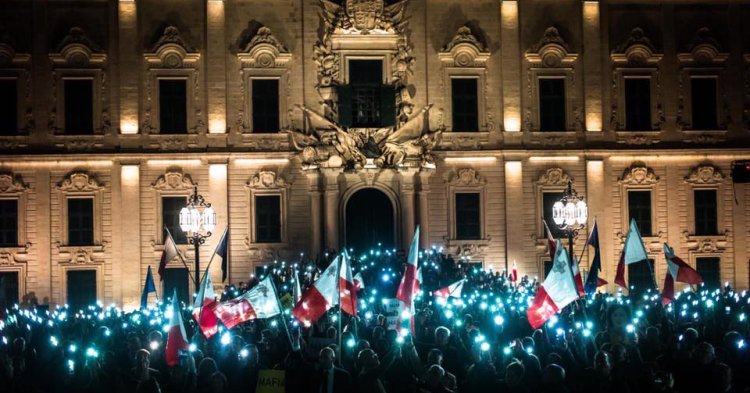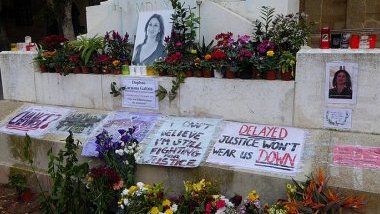People feared that someone close to the government was, in some way or another, linked to the barbaric assassination. After all, it was the very government which Daphne was investigating. But people did not expect the crisis would unfold as it did: as more information was made public by the country’s independent media, what at first seemed far-fetched became scaringly likely.
The widespread feeling of dissatisfaction throughout the country has reminded older generations of the 1970s and 80s, a period of widespread corruption, cronyism and tribalism.
But the past weeks have also seen a very rare development. Young people have gone beyond venting their anger on Facebook, and have taken to the streets to take part in protests and to show their anger at what is happening. This is no small feat for the country’s political situation.
For decades, Maltese politics has been dominated by a two-party system which has encouraged a culture of impunity, nepotism and omerta’. And for many years, the young have largely kepy away from politics. Yet at a crucial time in the country’s politics, they have decided to challenge this, to take to the streets and to fight for the European Union’s key values of democracy and free speech.
The gruesome assassination of Daphne Carauna Galizia, which shocked young people as much as anyone else, has to be placed in its political context. It came only after the Muscat Government won the 2017 general election by a staggering majority, despite relentless waves of corruption scandals: close associates of the Prime Minister’s had secret offshore accounts revealed in the Panama papers, and there was increasing evidence that his allies were using the state’s resources for kickbacks and corruption.
The Nationalist Party, led by Simon Busuttil, had run a campaign promising to fight said corruption. Yet its strategy did not pay off. The opposition’s defeat made many young people lost hope and become apathetic: how was it possible that this government had been re-elected? This feeling only intensified when the Nationalist Party elected its new leader Adrian Delia, who has led through an era of increased in-party fighting and polarization. While this was going on, no progress was made to actually establish a constructive opposition. Once again, young people seemed to face no real means by which to challenge the status quo.
The strength of the Labour Party’s majority has also made criticism of its behaviour difficult. Muscat was given the second most powerful mandate in Maltese history, and was admired, and viewed as more than just a great leader, by large sectors of the population. Criticising his government’s actions was not easy for young people, leaving them heavily exposed to internet attacks by government “trolls”. On the other hand, the polarisation prevalent among the opposition did not make the situation much better: there has been an increased perception that one is either in favour or against Delia, with very little middle ground for constructive criticism.
Most young people in Malta do not wish for a return to the tribal politics of the 1970s and 1980s. Until recently, this translated into us staying out of politics. For two long years, many of us have chosen to stay quiet, largely due to disillusionment but also due to fear of what it involved: being labelled and shunned if we voiced our opinions, particularly if they involved criticising the status quo.
Yet it is time to recognise that we have ended up in this situation largely because the Maltese population – and particularly students – has chosen not to question our politicians. There is now an unprecedented anger among many students. This anger must be channelled into something positive. It has to be channelled into hope and determination, in order to fight for a better democracy. Let us hope that this nasty affair translates into a student revolution for Malta.



Follow the comments: |
|
